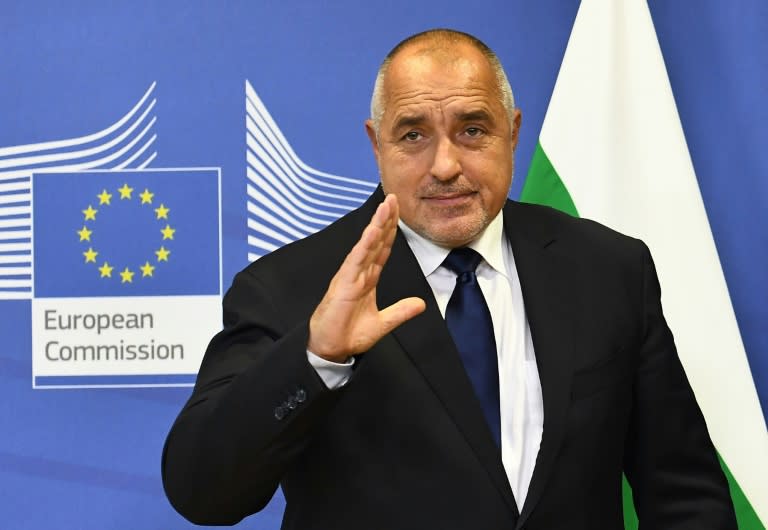From migrants to Brexit, Bulgaria to play mediator at EU helm
When Bulgaria takes up the rotating EU presidency on January 1, it will face the tough task of trying to reconcile the quarreling 28 member states and forge compromises on hot issues including migration and Brexit. The European Union faces unprecedented challenges as it grapples with a record influx of migrants and Britain's divorce from the bloc in 2019. Bulgaria has pledged to act as a mediator to heal rifts between eastern and western members, as well as smooth relations with Turkey, a key ally in tackling the ongoing migration crisis. "The slogan of the Bulgarian presidency is 'United we stand strong': we must address the thorny issues together," Foreign Minister Ekaterina Zaharieva told AFP in an interview. She urged EU countries "to prove their solidarity by protecting the EU's external borders instead of building fences inside the bloc". Bulgaria also counts on its first European Council presidency to improve its image as the bloc's poorest and most corrupt country. It wants to convince peers that after ten years in the EU, it is finally ready to join the visa-free Schengen travel area and move towards entering the eurozone. The country with a population of 7.1 million went through turbulent political times after the fall of communism. But it has enjoyed relative stability under the current conservative government of Prime Minister Boyko Borisov. The ex-bouncer with a black belt in karate won a third term last April and returned to power thanks to a coalition with the ultra-nationalist United Patriots. Since entering government, the junior party has toned down its aggressive anti-migrant rhetoric and instead adopted a more pro-EU and pro-NATO stance. Observers say Bulgaria has forged a reputation as a conciliatory EU member. Unlike the so-called Visegrad Four -- the Czech Republic, Hungary, Poland and Slovakia -- Bulgaria did not oppose a controversial EU plan created in 2015 to share migrants around the bloc members. "Bulgaria is one of the few ex-communist EU member states, which is thankful for the EU aid funds that have ensured 66 percent of its growth since its accession in 2007," a European diplomat in Sofia said. "It does not create problems, including on the policies about migration," the diplomat said on condition of anonymity. - 'Busy agenda' - Bulgaria's diplomatic skills will be put to the test when tortuous Brexit negotiations resume in March. Britain's departure, along with the expected reduction of the EU budget in 2020, is a key concern for eastern countries -- the biggest recipients of EU funds. The latest round of Brexit talks will focus on trade, after progress was achieved in December on key issues including EU citizens' rights in Britain. "We'll have a busy agenda as 2018 is the last full year of the mandate of this European Commission," the European Commission's representative in Bulgaria, Ognian Zlatev, told AFP. During its six-month stint at the EU helm, Sofia is expected to use Brexit as an opportunity to push for closer EU ties with Western Balkan countries. Bulgaria hopes to reignite accession talks with Montenegro and Serbia, while helping Albania and Macedonia move closer to starting EU membership negotiations. Zlatev said the presidency also aims to send "encouragement signals" to Bosnia and Kosovo in order "to include the whole region in the European perspective". The campaign will not be easy as enthusiasm for more EU enlargement has waned among existing members. - 'Normalise' Turkey ties - In migration matters, EU leaders have set a June deadline to agree an overhaul of the so-called Dublin Regulation, which currently puts too much pressure on frontline states Greece and Italy. To solve the refugee crisis, Sofia also insists that the EU needs to "normalise" its ties with Turkey, with which Bulgaria shares a 260-kilometre (160-mile) border. Relations have soured dramatically between the bloc and Turkey since a failed coup there in 2016. But Ankara is an essential partner in helping the continent stem the migrant flow from the Middle East, and Borisov insists this needs to be maintained "with all possible means".



